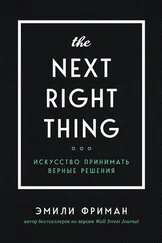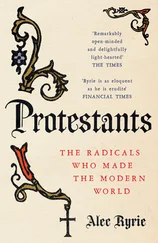The most glaring case of opportunist authoritarianism, however, is Hungary. It has long been obvious that Viktor Orbán’s Fidesz was driving Hungary down the road to what Orbán calls “illiberal democracy”, with measures to close the Central European University on the specious grounds that it was not accredited in Hungary, and gradually restricting press and judicial freedoms. The COVID-19 crisis has come at a useful moment for Orbán, when his party has suffered its first serious defeats in ten major cities. The rushed introduction of the new law, “On Protecting against the Coronavirus”, has been called ‘a brazen attempt to establish an undisguised dictatorship’ by the Hungarian Spectrum . 6In that piece and in another by CARR Fellow Vinicius Bivar in Fair Observer , the law, which grants Orbán the right to rule by decree, has been called an “enabling law”. 7This is a stark reference to Adolf Hitler’s so-called “Enabling Law”—the Law to Remedy the State of Emergency of Volk and Reich of 24 March 1933—which gave Hitler the power to rule by decree and thus brought about the end of parliamentary democracy in Germany.
The comparison is instructive, although it is not without dangers. On the one hand, making comparisons such as these makes it easy for the Fidesz spokespersons to scoff at the absurdity of suggesting that Orbán’s government could have anything in common with one of the most reviled and criminal regimes in history. Yet, in March 1933, the Third Reich was not yet a warmongering, genocidal regime, other than in an incipient way (by which I mean that genocidal fantasies had always been present in Nazi thinking, even if there was no blueprint for war and genocide). The comparison is meaningful insofar as we can see that the Orbán government is slowly chipping away at the norms of liberal democracy, attempting to quash opposition, and using this crisis in the way that the Nazis used the Reichstag fire, that is, to criminalise critics, or at least to attempt to do so. And while it might be harsh to compare the EU’s failure of nerve when faced with Hungary’s deviation from its rules to appeasement, in fact both rest(ed) on an inability to face up to the true nature of the regimes in question. That is why the EU is being urged, for example by Márta Pardavi, co-chair of the Hungarian Helsinki Committee, ‘to wake up and take action if it wants to prevent the virus of authoritarianism from infecting other countries’. 8Orbán is not Hitler, Fidesz is not the NSDAP—that comparison is absurd. But if he has his way, Orbán will be sure to use the COVID-19 crisis as the harbinger of authoritarianism, dressed up as defending “the people” but ushering in poverty for millions of Hungarians and more deeply-entrenched cronyism for the apparat.
The COVID-19 crisis, as with previous strains of coronavirus, has been brought about by human action. The desire to return to “normality”, which is a basic and hardly surprising response, is inadequate insofar as it was “normality” which caused this virus to appear and to spread in the first place. One of the things that needs to change is that the human race’s need to be fed has to be addressed in a more rational way, with the hugely unequal distribution of resources across the world being addressed as a matter of urgency. What will also need to be addressed with no less urgency is the temptation for demagogues to respond by blaming certain groups for causing the virus, a stance which easily slips into rhetoric in which particular groups of people are themselves figured as a kind of virus. The emergence of fascism in the wake of World War One and the flu epidemic which followed it should be a warning. If the economic downturn which is likely to follow the lockdown is not to lead to a twenty-first century form of fascism, then the voices of scientific experts need to be heeded and governments across the world need to work together to alleviate the hurt being inflicted on millions—possibly billions—of people who will be left unable to maintain a basic standard of living. Man cannot live by bread alone, said Brecht, especially when he has none.
Dr Dan Stoneis a Senior Fellow at CARR and professor of modern history at Royal Holloway, University of London.
1Cnaan Liphshiz, “Senior Romanian Priest Compares Jews to Coronavirus in Easter Greeting,” Jerusalem Post , April 13, 2020, https://www.jpost.com/Diaspora/Antisemitism/Senior-Romanian-priest-compares-Jews-to-coronavirus-in-Easter-greeting-624482.
2Dan Stone, “Trump Needs to Stop Speaking Like a 20th-Century Fascist,” Rantt , August 9, 2019, https://rantt.com/holocaust-historian-trump-needs-to-stop-speaking-like-a-20th-century-fascist.
3Sabine Volk, “Germany—Is the Covid-19 Pandemic Weakening the Far Right?,” CARR Insight Blog , April 7, 2020, https://www.radicalrightanalysis.com/2020/04/07/Germany-is-the-covid-19-pandemic-weakening-the-far-right/.
4Hans-Georg Betz, “Coronavirus-19’s Victims—Populism,” CARR Insight Blog , April 5, 2020, https://www.radicalrightanalysis.com/2020/04/05/coronavirus-19s-victims-populism/.
5Ben Gittleson and Jordyn Phelps, “Trump’s Stunning Reversal on ‘Total’ Authority Claim over Governors,” ABC News , April 15, 2020, https://abcnews.go.com/Politics/trumps-stunning-reversal-total-authority-claim-governors-analysis/story?id=70160951.
6“Plenty of Noise on the Western Front, But Will Action Follow?,” Hungarian Spectrum , April 3, 2020, https://hungarianspectrum.org/2020/04/03/plenty-of-noise-on-the-western-front-but-will-action-follow/.
7Vinicius Bivar, “Will the Coronavirus Crisis Bring Down Hungary’s Failing Democracy?,” Fair Observer , April 14, 2020, https://www.fairobserver.com/region/europe/vinicius-bivar-hungary-coronavirus-emergency-law-viktor-orban-democracy-news-19722/?utm_source=newsletter&utm_medium=email&utm_campaign=April+15%2C+2020.
8“What Should the EU Do About Hungary?,” Politico , April 14, 2020, https://www.politico.eu/article/what-should-the-eu-do-about-hungary-coronavirus-viktor-orban/?fbclid=IwAR03yMO2npKfTkOVftRCMgNL-IX0BWYo_0HkDbL8sUlr4ARb-6IjpL00ps.
Anti-government Ideology in the Times of COVID-19
Jaclyn Fox
By mid-April 2020, protests against government-imposed lockdowns began springing up across the United States. At their centre was a pronounced distrust of the government and push-back against perceived intrusion of personal freedoms. However, as these anti-government protesters spoke out against federal and state level interventions, they simultaneously elevated the actions of the individual at the centre—President Donald Trump. Here, I explore the peculiar intersection between anti-government ideology and support for President Trump over the course of the COVID-19 pandemic. Specifically, I map the changing responses of the Oath Keepers 1to government intervention against their consistent narrative of deep-state actors utilizing COVID-19 to undermine Trump. 2
Initial stages of the COVID-19 crisis: Anti-government for increased intervention?
Although classified as an anti-government group, 3the beginning of the COVID-19 crisis paradoxically saw Oath Keepers calling for increased government intervention at the state and federal levels. 4Indeed, Oath Keeper leadership supported shelter-in-place efforts as well as a complete shut-down of commercial air traffic (domestic and international), mass transportation, the closing of schools, and the suspending of public events. 5Further, they viewed lack of intervention as detrimental to US citizens, chastising Trump for not taking such actions as pre-emptively suspending air travel.

Not only did the Oath Keepers implore their members to self-quarantine, but they also called upon state governors to make these regulations official—declaring pandemics and requesting assistance from both state and national sources, including the US military. 6This latter step is particularly interesting for a group suspicious of federal government intervention. However, Oath Keeper leaders noted that participation by the military would allow Trump to be guided in pandemic decision-making by military personnel as opposed to “career bureaucrats” 7—global elites viewed with deep suspicion by the Oath Keepers—perhaps explaining their military support.
Читать дальше













